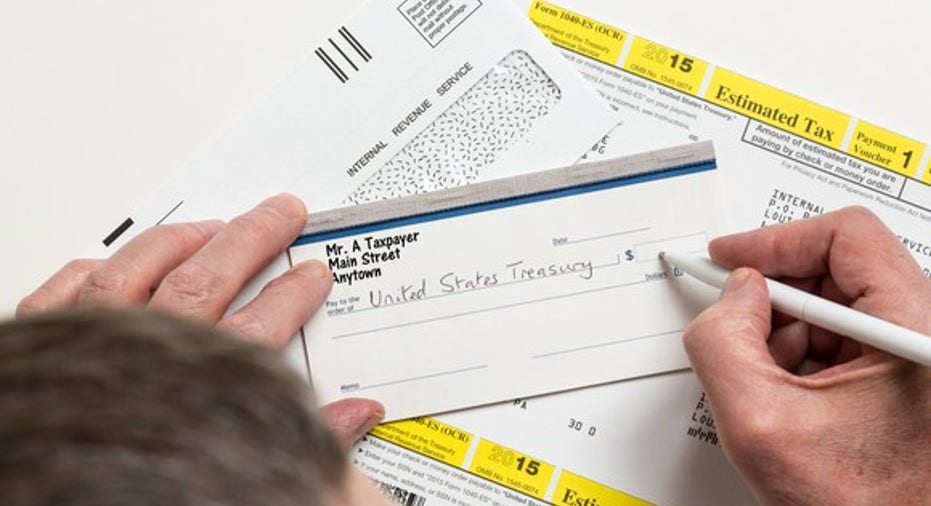Do I Have to Pay Estimated Taxes?

Any time you earn money, whether it's from a full-time job or interest on a savings account, the IRS is bound to want its share. But while salaried employees have taxes withheld from their paychecks automatically, those who are freelance or self-employed need to take matters into their own hands. If you don't lose a portion of your earnings to taxes when you get paid, then you're required to make quarterly estimated tax payments to the IRS throughout the year.
Image source: Getty Images.
The purpose of estimated taxes
The IRS expects to get its share of your income as it's earned. For this reason, if you're freelance or self-employed, you can't just wait until you're ready to file your return and pay your taxes for the year in one lump sum. Rather, you're supposed to pay the IRS all along. As a general rule, if your tax liability equals $1,000 or more for the year, you'll need to make estimated tax payments.
How to pay estimated taxes
Ideally, you're supposed to pay your estimated taxes in four equal installments throughout the year. However, if your income is variable, you may wind up paying more one quarter and less another. Of course, figuring out how much to pay in estimated taxes can be tricky if you don't earn the same amount of money month after month. There are also certain factors, like business-related deductions, that can impact the amount of tax you're ultimately liable for.
If you've paid estimated taxes in the past, you may be able to use those previous payments as a starting point. Otherwise, the IRS has a handy worksheet(link opens PDF) you can use to get started.
Once you figure out how much tax you owe on your earnings, you'll need to submit those payments to the IRS according to the following deadlines:
- April 15
- June 15
- September 15
- January 15 of the following year
While nobody wants to deal with the hassle of filing quarterly taxes, the IRS actually makes it fairly easy to get your payments in on time. You can submit them via the IRS website and save yourself a trip to the post office.
Make those payments on time
Waiting until the end of the year to pay your estimated taxes, or submitting them along with your annual return, is a pretty bad idea. The IRS assesses a penalty for all late payments, so the longer you wait to hand over your estimated taxes, the more it could cost you. Of course, mistakes happen, so if you miss a quarterly deadline, don't wait until the following quarter to pay what you owe. Rather, make that payment as soon as you remember.
Penalties aside, there's another danger in waiting to make your entire tax payment all at once. Some of us aren't great at managing our own money, and if you fail to set aside enough cash to cover your tax liability along the way, you could get into big trouble once your annual return comes due.
Of course, you don't want to overpay your taxes, either. Although you'll get that extra money back as a refund, any time you pay more taxes than necessary, you're essentially granting the U.S. government an interest-free loan. That's why your best bet is to sit down with an IRS worksheet and aim to be as precise as possible with your payments. It may be a bit tedious, but it'll help you avoid paying too much or too little estimated tax.
The $15,834 Social Security bonus most retirees completely overlook If you're like most Americans, you're a few years (or more) behind on your retirement savings. But a handful of little-known "Social Security secrets" could help ensure a boost in your retirement income. For example: one easy trick could pay you as much as $15,834 more... each year! Once you learn how to maximize your Social Security benefits, we think you could retire confidently with the peace of mind we're all after.Simply click here to discover how to learn more about these strategies.
Try any of our Foolish newsletter services free for 30 days. We Fools may not all hold the same opinions, but we all believe that considering a diverse range of insights makes us better investors. The Motley Fool has a disclosure policy.



















